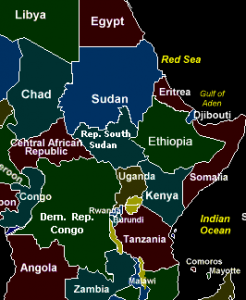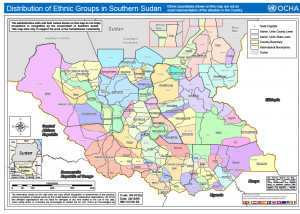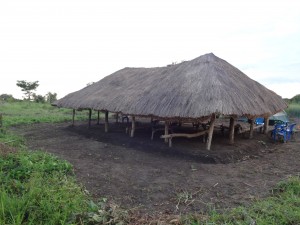Ground Truthing and Eternity-shaping Decisions

It’s the most difficult par of our job as an Engagement* Team for South Sudan.
- Which tribes/people groups are truly Unreached?
- Whom do we seek to reach first?
- What church(s) in America or Africa will commit to stand in the gap for the Unreached Group.
Eternal decisions hang in the balance. Deciding whether a tribe is truly a “U.U.P.G.” (Unreached Unengaged People Group: a miniscule number of born-again believers and no Evangelical Group working among them.) When we decide a group is unreached, we must decide a priority on the order in going to them.

There are various internet resources we use for information. The Joshua Project http://joshuaproject.net/search.php People Groups.org We even have a checklist for helping the process. We also rely on maps and information from other organizations.
All of these are good starting points but only part of the process.
I want to introduce you to a term that we’ve come to understand. Ground-Truthing. Ground-Truthing is the process of putting your “boots on the ground” and seeing for yourself about an area or people. It is an irreplaceable part of our research. (At the end of this article I give a “Louisiana example” of ground-truthing. **)
Here is a thumbnail sketch of a people group our home church, Dry Creek Baptist Church, is considering “adopting.” For security’s sake, we’ll call them the “K People.” They live at the junction of three countries: South Sudan, Uganda, and Democratic Congo.
- Jumbo Baptist Church in South Sudan. This church is planting churches in the neighbouring villages. Engagement is the process where an American church comes alongside churches like Jombu.
Through four Ground Truthing trips to the K-People, we’ve learned:
A challenge on all African tribes concerns their proper name. The K people are actually part of a larger group called the Bari. The Bari live mainly in South Sudan under five different groups, of which the K people are one. The Ugandan K People are about half Muslim. The remainder are a blend of traditional African religion and two mainline European churches: Anglican (Church of England) and Roman Catholic.
The majority of those in these churches will state they are going to Heaven because they were “baptized into the church” as a child.
Last week, a Bari taxi driver answered my spiritual question with an honest reply: “I’m a Christian, but not born again.”
According to Jesus in John 3:3, being born again is a requirement. Among the K-people, you’re considered a “Christian” if you’re not Muslim. The Ugandan K-People (whom our Engagement Team firmly believes is Unreached) is a strategic group because:
- Location: Reaching them and planting churches will spread the gospel to DRC (Democratic Congo which is currently inaccessible by outsiders.) and South Sudan. K-People can easily cross and re-cross these borders.
2. Neighbors: East of the K-People are the A-Tribe. They are fiercely Islamic and have a track record of violence toward followers of Jesus. Our team believes the K-people can reach their neighboring tribe.
3. Strategic: Reaching the Ugandan K-People is part of a strategy to reach them in both DRC and South Sudan. A group of pastors from Louisiana will be among the South Sudan K-People in January. We hope a group of French-speaking Louisiana pastors will help with the Congolese K-People (where French is the trade language.) The Adoption process is a serious commitment: sending multiple groups of four to a people group. It will be costly in time, resources, and finances. However, the fields are white.
As I was writing this, a K-Group pastor called with the news that thirty people were saved this week in a village near the South Sudan border. The question now is who will come work alongside this pastor to disciple these new believers. The fields are white. Let’s pray to the Lord of the Harvest for field workers.
________________________
*What is Engagement? Engagement is the three-part process of:
- Identifying where Unreached Groups are in South Sudan and its borderlands.
2. Going to these groups with “Boots on the Ground” Research to learn about their culture, background, and beliefs.
3.
- Prayerfully connecting National (African) churches and American churches to adopt and reach the Unreached Group.
We believe there are five (5) basic steps to becoming an “Engaging Church.”
** Ground Truthing in Louisiana. During my school administrator years, we dealt yearly with flooding on Bundick Lake. Often the floodwaters would cover area roads. Rumors “flooded” our community over where road closures were and if the waters were rising or falling.
I learned the importance of Ground-Truthing: personally driving to each roadway and seeing for myself as well as measuring a marked stick placed along the road. I could then answer each wild rumor with, “I just drove up there and saw for myself. The water is at Three Bridges is . . .”
That is Ground-Truthing.
 Creekbank Stories Curt Iles, Storyteller
Creekbank Stories Curt Iles, Storyteller

